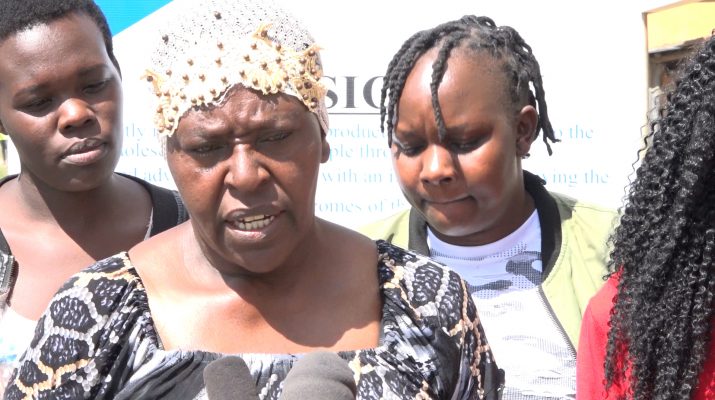Civil Society Groups in Nakuru have faulted the Ministry of Health for launching the National Reproductive Health Policy (NRHP) 2022 – 2032 without conducting the mandatory public participation as provided for in the Constitution.
In a joint press conference the Coordinator to the Reproductive Health Champion Organization, Martin Lunalo stated that the views of professionals on reproductive health were not considered and the policy does not address critical issues such as high maternal rates from unsafe abortions.
Lunalo indicates that though they had in November last year written to the Ministry requesting inclusion of civil society in the drafting and validation processes prior to roll-out of the draft Policy, the Ministry held validation meetings on February 2 and 17 2022, without involving them.
“This comes after months of repeated requests for meaningful engagement on policy development and review process including an attempt to launch the policy on March 23 this year but was suspended after a section of civil society and women rights defenders raised an uproar over lack of public participation in the development process, absence of critical health interventions and several other problematic clauses.”
In the letter also signed by CGHRD Co-Founder Rachael Mwikali, TICH Executive Director Ms Jedidah Maina, Associate Director, Legal Strategies for Africa, Center for Reproductive Rights (CRR) Mr Martin Onyango and National Coordinator at the Sexual and Reproductive Health and Rights Alliance Ms Mwikali Kivuvani the groups claim that the Reproductive Health Policy sneaks in Crisis Pregnancy Centers as a solution to unplanned pregnancies.
Kenya Obstetrical Gynecological Society (KOG), Coalition for Grassroots Human Rights Defenders Kenya (CGHRD) and Trust for Indigenous Culture and Health (TICH), claim that the Ministry made a wrong move that will likely put the legitimacy of the NRHP into question.
The Organization`s programs manager Quinter Chemutai observed that under Articles 1(1), 1(2), 10, and 38 of the Constitution of Kenya, there is an obligation to consider the needs and interests of the public who are likely to be adversely affected by the proposed policy, before the policy is launched and operationalized.
Moreover, she noted, the Ministry has not provided the public with information on where and how they can access the draft Policy. It is therefore impossible for people to comment on this crucial document as it is not readily available.
The groups state that the RH Policy excludes key sexual and reproductive health issues and has not sufficiently captured interventions on unsafe abortion despite unsafe abortion being a major cause of maternal mortality and morbidity in Kenya.
They also claim that the Reproductive Health Policy contradicts the Convention on the Rights of the Child and the Ministry’s own Adolescent Package of Care by classifying sex for persons under the age of 21 years as a harmful reproductive health practice, and enforcing consent from parents, guardians or government medical specialists when providing reproductive health services to minors.
“This also contradicts certain county-specific reproductive health policies that allow minors to consent to their own reproductive health services. The Reproductive Health Policy is unconstitutional as it requires single parents to be vetted by a professional committee to have children through surrogacy.
This violates the right to reproductive health under Article 43(1) of the Constitution, which includes the right to decide if, when and how often to have children; and the right to equality and freedom from discrimination under Article 27 of the Constitution,”
“In total disregard of constitutional provisions, the Ministry drafted and launched the policy without calling for public input. This is a wrong turn,” Lunalo says in an open letter to the Head, Division of Reproductive and Maternal Health, Ministry of Health Dr Stephen Kaliti and copied to Health Cabinet Secretary Mutahi Kagwe, Principal Secretary Susan Mochache, Acting Director-General for Health Dr Patrick Amoth and Chairperson, National Gender and Equality Commission Dr Joyce Mwikali Mutinda.
It further reads “The right to safe and legal abortion in exceptional circumstances is articulated in Article 26(4) of the Constitution. A guiding framework on Article 26(4) is necessary to ensure access to safe abortion services provided by trained medical personnel.”
The letter is also copied to Chairperson, National Gender and Equality Commission Dr Joyce Mwikali Mutinda, Chairperson, Council of Governors Martin Wambora, Chairperson, Kenya National Commission on Human Rights Roseline Odede and Chairperson, Commission on Administrative Justice Florence Kajuju.

